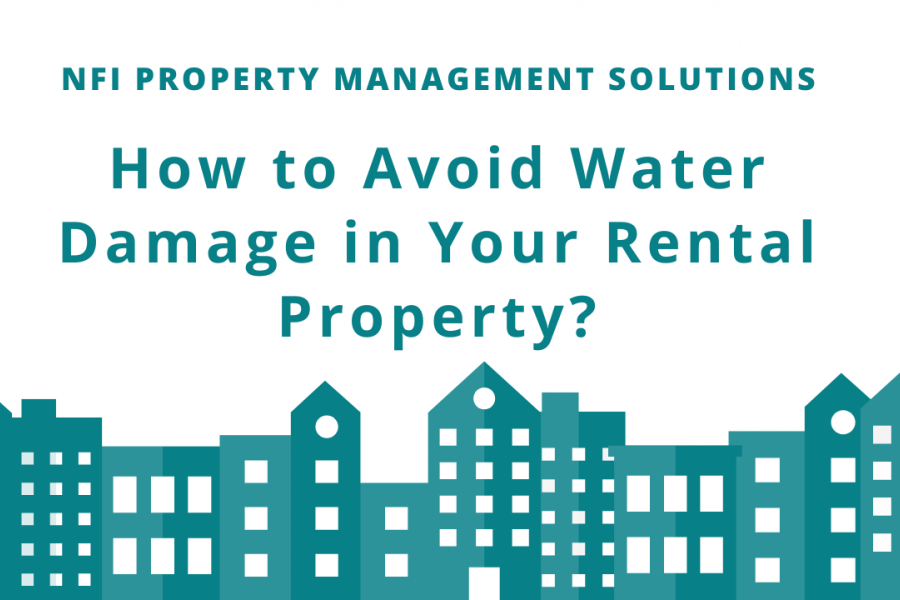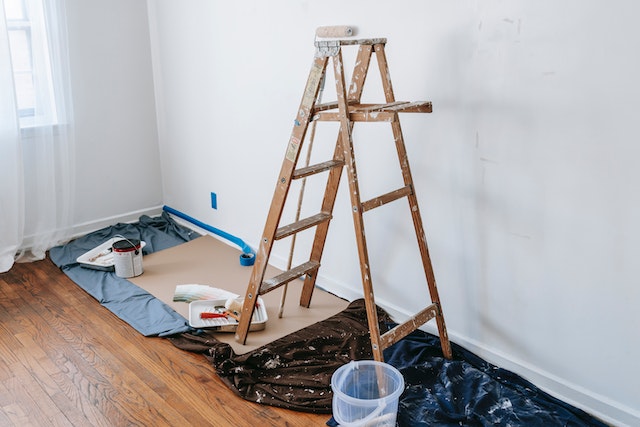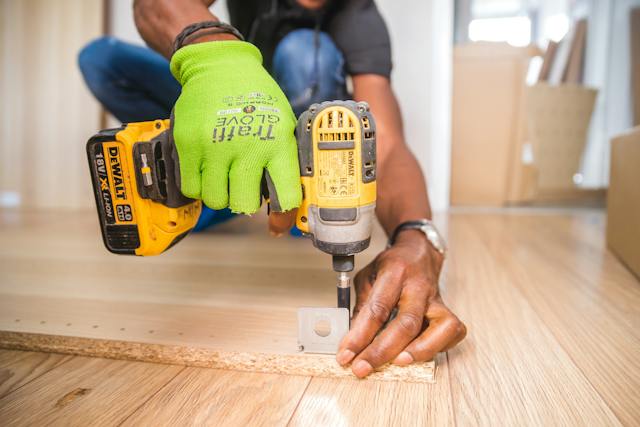
A rental property is an invaluable asset. It provides investors with a steady source of passive income, while also ensuring that your equity grows over time.
That’s why it’s understandable for landlords to do everything they can to maintain their rental properties in good condition.
After all, a damaged rental property can drive tenants away, increase maintenance and repair costs, and create potential disputes if responsibilities for water damage aren’t clearly outlined in the rental agreement.
If you own a rental property in Florida, you should take extra precautions to prevent water damage.
Given the state’s humid weather and high risk of hurricanes and flooding, water damage is a common problem for homeowners.
If you’d rather not deal with expensive repairs, long-drawn insurance claims, and unsatisfied tenants, you’ve come to the right place!
In this guide, the team at NFI Property Management Solutions will go over the best strategies to avoid water damage in your Pensacola rental. Keep reading to learn more!
What Is Water Damage?
Water damage occurs when excess moisture infiltrates a property, surpassing what could be considered normal wear and tear, leading to structural deterioration, mold growth, and potential damage to belongings.
If left unattended, water damage can weaken foundations, walls, ceilings, and floors, creating costly repair needs. It can also compromise electrical systems, increasing safety risks.

Common Signs of Water Damage
Understanding the signs of water damage is key for identifying and addressing issues before they escalate. Here is a list of the most common signs of water damage on a rental property:
- Peeling paint or wallpaper
- Softened or cracked drywalls
- Increased water bills
- Musty odors
- Visible mold growth on walls, ceilings, or fixtures
- Puddles or increased dampness around the foundation
- Water stains on ceilings and walls
- Soft walls
- Dripping sounds within or behind walls
- Warped walls
- Stains or discoloration on ceilings, walls, or floors
- Droopy ceilings
- Wet or dark spots on walls and ceilings
What to Do if You Find Signs of Water Damage on Your Rental Property
If you ever come across signs of water damage on your property, it's essential to act quickly to minimize the extent of the damage.
Start by identifying the source of the damage, whether it’s from a broken pipe, roof leak, or external flooding.
If necessary, turn off the water supply to prevent further damage. Then, dry the affected area as quickly as possible using fans, dehumidifiers, or towels to prevent mold growth.

Remove any furniture, carpets, or belongings that could be damaged by continued exposure to moisture.
Next, assess the damage and contact professionals, such as a plumber or roofing expert, to repair the source of the leak.
If the damage is significant, consider hiring water damage restoration services to clean and repair the affected areas. Always keep records for insurance claims and take preventive measures to avoid future water issues.
Preventing Water Damage in Your Rental Property
Dealing with water damage can be costly and time-consuming. It pays off to take a proactive approach to water damage prevention. Here are some things you can do to reduce the risk of water damage on your rental property:
Conducting Regular Inspections
There’s no better way to identify water damage than by inspecting the property. Regular property inspections can help you spot early signs of water damage, such as leaks, cracks, stains, or damaged walls, before the issues escalate.
Regular Roof Maintenance
A damaged roof is more vulnerable to water damage. Inspecting the roof of your rental property and cleaning gutters and downspouts regularly will help prevent flooding and water intrusion.
Maintain the Plumbing Systems
Ensuring that plumbing is working correctly and that there are no leaks, drips, or broken pipes will minimize the risk of water damage.

Ensure Proper Ventilation
Inadequate ventilation can increase the risk of moisture buildup, which can cause mold growth and structural issues over time.
That’s why you must ensure that your property has proper ventilation, especially in areas more prone to moisture accumulation, such as bathrooms, kitchens, and laundry rooms.
Educate Tenants
Keeping your rental property is a shared responsibility between you and your tenants. In order to prevent serious property damage, your tenants must know how to identify the most common signs of water damage.
Additionally, tenants must know how to report maintenance issues and what to do in case of an emergency, such as flooding.
Partner with a Property Manager
Preventing water damage involves a lot of work, from conducting regular roof inspections and maintaining gutters and downspouts to fixing leaks promptly and ensuring proper drainage around the property.
If you’re having trouble keeping on top of this, you should consider partnering with a property management company. They have the tools and resources to do preventive maintenance, as well as emergency repairs.
Bottom Line
Water damage is one of every landlord’s worst nightmares. Dealing with water damage can be incredibly expensive and time-consuming, as it involves fixing structural issues, replacing damaged materials, and addressing mold growth. If the damage is too extensive, it can drive tenants away and lower the value of your property.
Preventive measures, such as conducting regular inspections, maintaining the roof, cleaning the gutters regularly, and ensuring proper ventilation can significantly minimize the risks of water damage.
Plus, partnering with a property management company will ensure that leaks and repairs are always addressed promptly, preventing issues from escalating further.
If you’re looking for a property manager in Pensacola, Florida, to help you maintain your rental property, contact NFI Property Management Solutions today!